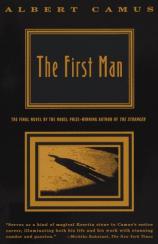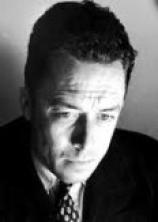Reading Group Guide
Discussion Questions
The First Man

1. The first chapter of this novel is different from the rest. In it, the author/narrator imaginatively re-creates the situation of his own birth, whereas elsewhere he works closely from memory. Does this chapter seem more "fictional" than the rest of the book, which can be seen as verging on memoir or autobiography?
2. One of the titles Camus considered was Adam. How would this title also be appropriate? How does the idea of the "first man" work throughout the novel, and how does it relate to Jacques's feelings about Algeria?
3. Jacques Cormery's visit to his father's grave is far more significant than he expects it will be. How is he changed by his realizations in the cemetery? What is the meaning of the "statue" [p. 26] he has erected of his adult self? How is Jacques himself suddenly placed in a different relationship to history-- that of France, that of Algeria, that of his own lineage-- by his visit to the cemetery? At this point, the novel becomes a search for a lost history and a missing person. What is at stake in this newly urgent search?
4. What is the role of memory in Jacques's effort to find his father? How does his mother's relationship to the past differ from his own? Discuss some of the ways in which scraps of information and details of his father's life, related to him by people who remember his father, become important. What sort of a person does he reconstruct from the story of his father's disgust at the mutilation of the sentries in the war in Morocco [pp. 64-66] and from the tale of his father's response to the execution of the murderer Pirette [pp. 81-82]? How does the shell fragment extricated from his father's head, stored in a biscuit tin, take on a more complex meaning?
5. Perhaps Jacques hasn't truly missed his father until his visit to the cemetery because he has had the good fortune to have had substitute fathers, Malan, Monsieur Bernard, and his Uncle Ernest. Why haven't these relationships ever fully taken the place of the father he has never known? How does Jacques's Uncle Ernest function as a very different sort of second father for the boy?
6. In the novel, how is the mother's identity fixed by the loss of her husband in the French forces in World War I? What happens when a potential lover enters the household? How does this episode express the forces of love and cruelty in the family?
7. In the opening chapter of the novel, Camus demonstrates some ambivalence about the presence or absence of a brother four years older than his fictional self, Jacques Cormery. Do you find it strange that the brother, though often mentioned as the narrative progresses, doesn't play a larger role in the story? Do you think that Camus would have decided at a later point of composition to take the brother out of the story altogether, or to make him a more important character?
8. Camus once wrote, "For me honor in the world is found among the oppressed, not those who hold power." How does Jacques's victory over Munoz in the schoolyard fight illustrate an early example of this moral vision? How does Jacques's theft of the two-franc piece (and his grandmother's attempted recovery of it) affect his understanding of the family's economic situation, and his own betrayal of the family? In another situation in which his grandmother plays a major part, Jacques is forced to lie in order to get a summer job. Why is this particular act of loyalty to the family's economy so difficult for him?
9. Jacques Cormery lives in a household in which he is the only one who reads. Household objects have humble, common names, if any at all, whereas Jacques discovers that in other homes "you ate off the Quimper dinner service" [p. 60]. He grows up speaking French, the language of colonial power in Algeria, yet his people are as powerless as the indigenous Arabs. How does Camus develop the theme of the family's relationship to language, to speaking, and to silence? How is all this connected to Camus's larger themes about freedom and intellectual life?
10. According to Jacques, poverty extends itself not only to language but also to memory. Thinking about his mother's clouded memory, Jacques reflects that "poor people's memory is less nourished than that of the rich; it has fewer landmarks in space because they seldom leave the place where they live, and fewer reference points in time throughout lives that are gray and featureles...Remembrance of things past is just for the rich" [p. 80]. Is memory a luxury? Is the cherishing of the past only for those with the leisure to dwell upon it? Could Jacques himself live a life without memory? How does his own desire to recapture his childhood and his father's life contradict his statement?
11. As Camus was writing The First Man, Algeria was in the throes of revolution. How is the Arab presence felt in Camus's novel? When Camus sees Algeria as "the land of oblivion," is it only the experience of the colonists, or pieds noirs, in the land that he speaks of, or does he include the Arab peoples as well? Is the co-existence of the Arab and immigrant communities felt in the novel, or do the two seem entirely segregated? How, if at all, do you think Camus might have developed the matter of the Algerian revolution in a finished version of the novel?
12. Notice the distinction between the descriptions of the weather, the landscape, and the architectural environment in the first and second chapters-- the first takes place in Algeria, "this nameless country" [p. 3], the second in northern France, "a land that for centuries had been cultivated to the last square meter" [p. 20]. See also pages 40-41 for a more extended comparison of Jacques Cormery's thoughts about France and Africa. How do Jacques's responses to weather, to landscape, and to buildings express different feeling states in him about his two conflicting national identities-- Algerian and French? Where does he feel that his true identity lies?
13. Camus chooses to use a very smooth method of moving in and out of the past. How do you experience the handling of time in this novel? Note some of the places where the shifts into the past occur, and where time returns to the "present," in which Jacques Cormery is forty years old. Do you feel that Camus's use of time is effective?
14. Do you experience The First Man as a work of fiction or as a memoir? How would you describe the mode of narration? Is the narrator omniscient, or does the narrator have access only to the thoughts and memory of Jacques? Do the appendix, the marginal notes, the switching from real to fictional names, the plans for further development, etc., disturb your immersion in the work as fiction? Do they, on the other hand, help you to feel engaged in Camus's writing process and in the evolution of a novel in progress?
15. Many readers comparing The First Man to Camus's other writing are struck by his departure in this book from his habit of emotional reticence. In her introduction, his daughter expresses the opinion that Camus would have toned down the directness of the emotional expression, and hence his own degree of personal exposure. And Camus wrote to his wife that the draft of his book was very autobiographical, but would be "less so" in its final version. Do you feel that Camus is too close to his subject, and that a greater emotional distance from his own fictionalized life would have improved the novel? Or, on the other hand, do you think that any such distancing tactics would have seriously diminished the novel's power?
The First Man
- Publication Date: August 6, 1996
- Paperback: 336 pages
- Publisher: Vintage
- ISBN-10: 0679768165
- ISBN-13: 9780679768166








